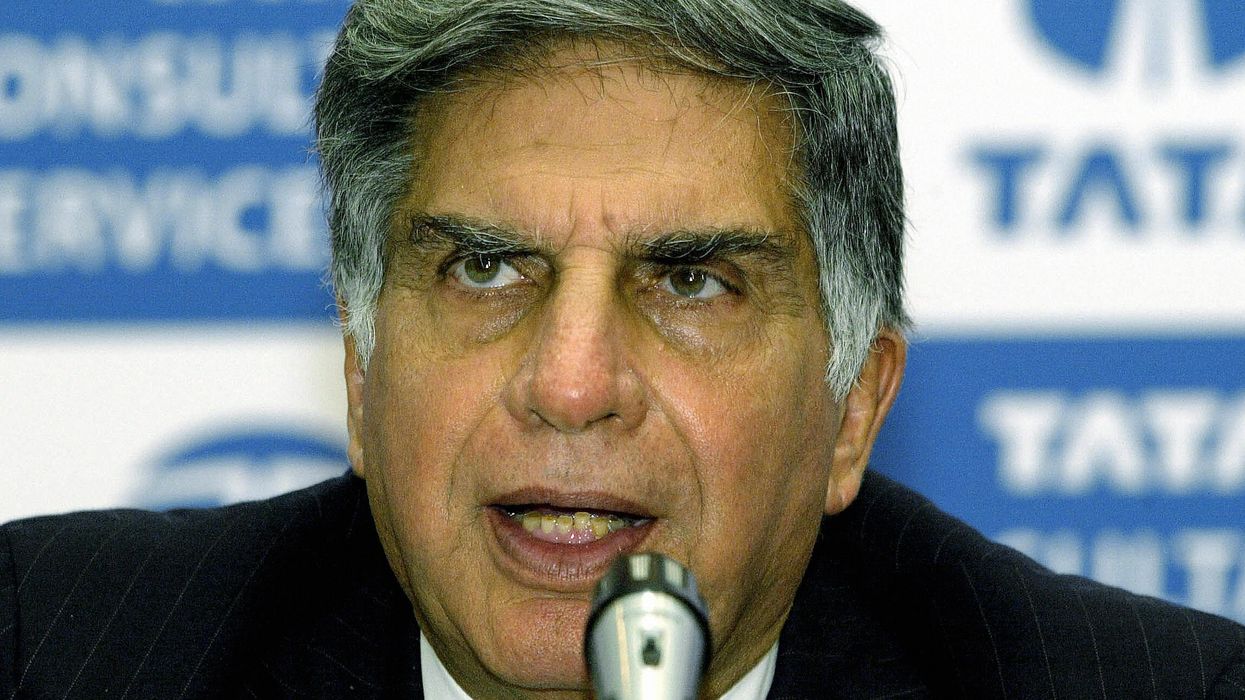RATAN TATA, the Indian industrialist who transformed the Tata Group into a global conglomerate, has died at the age of 86. Known for his leadership in expanding the group’s operations from software to luxury cars, Tata’s tenure helped shape the company’s international reputation.
Tata, who originally planned to be an architect, was working in the United States when his grandmother asked him to return to India and join the family business. He began his career in 1962, working on the shop floor near blast furnaces while staying in a hostel for apprentices.
"It was terrible at that time, but if I look back at it, it's been a very worthwhile experience because I have spent years hand-in-hand with the workers," Tata said in a rare interview.
In 1991, Tata took over the leadership of the company as India opened its economy to global markets. His 21-year tenure saw the Tata Group acquire global brands such as Jaguar and Land Rover.
Expansion and challenges
Tata’s leadership also saw the group expand into new sectors. In 2004, Tata Consultancy Services went public, and Tata soon announced plans for the company to expand its global presence. His vision led to acquisitions such as Britain's Tetley Tea and the Anglo-Dutch steel firm Corus.
The 2008 acquisition of Jaguar and Land Rover for £1.75 billion brought Tata Group into the global spotlight. However, the Corus acquisition faced challenges due to falling European steel demand.
Tata's dream of creating the world’s cheapest car, the Tata Nano, failed to meet market expectations in India, where status-conscious buyers were reluctant to own what was seen as a "poor man’s car."
Ratan Tata poses in front of the Tata Nano car during the launch in New Delhi, 10 January 2008. (Photo: Getty Images)Despite these setbacks, Tata’s overall achievements were significant, with the group’s revenues rising from £4.58 billion to £76.34 billion, and its presence extending to over 100 countries.
Controversies and retirement
Though respected in India’s corporate world, Tata was not without controversy. In 2011, he was questioned in connection with a telecom licensing investigation, but the group was cleared of any wrongdoing.
Tata stepped down in 2012, with praise from industry leaders, including Rahul Bajaj, who called his tenure "outstanding." Reflecting on his work, Tata said, "I have devoted my life, as best I could, to the welfare of the group."
Rata Tata's 21-year tenure saw the Tata Group acquire global brands such as Jaguar and Land Rover. (Photo: Getty Images)Brief return and later years
Tata’s retirement was brief. In 2016, he returned to lead the group temporarily after the dismissal of his successor, Cyrus Mistry, which led to a public dispute. Mistry’s sacking and the fallout from the incident hit the group’s reputation and stock prices.
After stepping away again, Tata welcomed Air India back to the group in 2021, years after its nationalisation. In his later years, Tata focused on charitable efforts and investing in start-ups.
Tata remained active in his personal life, joining Instagram at 81 and sharing his interests in cars, flying, and dogs.
(With inputs from AFP)




